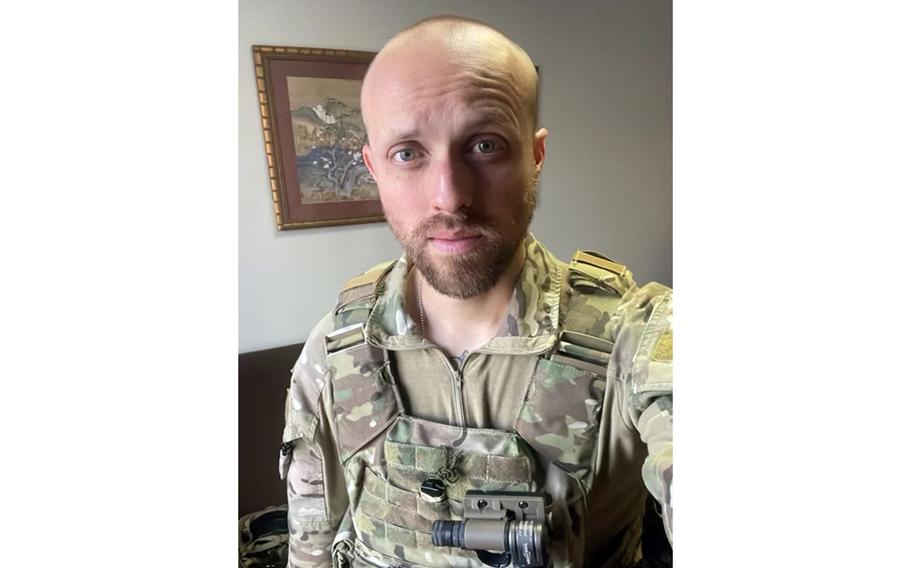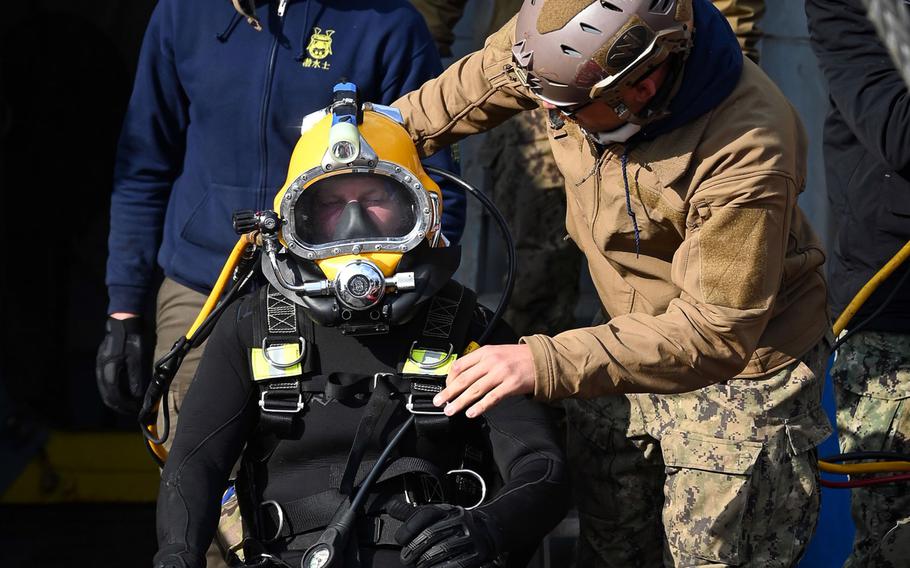
Air Force Maj. Eric Spendlove, 36, of St. George, Utah, was a flight surgeon and medical operations flight commander. (U.S. Air Force)
The Air Force has called off search efforts for the only missing crew member from a CV-22 Osprey that crashed off the southern Japan coast more than a month ago.
For 44 days, U.S. and Japanese military search teams scoured more than 23,000 square miles of ocean surface and 15 square miles of ocean floor without finding the body of Maj. Eric “Doc” Spendlove, Air Force Special Operations Command said in a news release Thursday.
More than 1,000 U.S. and Japanese personnel, using 46 aircraft, 23 vessels and 21 unmanned aerial and underwater systems, had exhausted “all identified possible options” to recover Spendlove, Rear Adm. Jeromy Williams, head of Special Operations Command Pacific, said in the release.
Williams expressed a “deep regret” for being unable to find Spendlove, but said it was “inspiring to see the lengths our forces will go in order to attempt to bring a teammate home.”
Spendlove, 36, of St. George, Utah, was a flight surgeon and medical operations flight commander aboard the Osprey that crashed Nov. 29 during a routine training operation. The tiltrotor went down off the coast of Yakushima, an island south of Kyushu, the southernmost of Japan’s four main islands.
“Our main priority since the mishap has been locating and bringing our Heroes back to their families,” Williams said.

A U.S. Navy diver takes part in recovery efforts on Dec. 25, 2023, after a CV-22 Osprey crash the previous month killed eight crewmembers. (Chelsea Meiller/U.S. Air Force)
The remains of seven other crew members were recovered between Nov. 29 and Dec. 10: Capt. Terrell Brayman, 32, of Pittsford, N.Y.; Staff Sgt. Jake Galliher, 24, of Pittsfield, Mass.; Maj. Jeff Hoernemann, 32, of Andover, Minn.; Senior Airman Brian Johnson, 32, of Reynoldsburg, Ohio; Tech. Sgt. Zachary Lavoy, 33, of Oviedo, Fla.; Staff Sgt. Jake Turnage, 25, of Kennesaw, Ga.; and Maj. Luke Unrath, 34, of Riverside, Calif.
“Our thoughts remain with the families and squadron mates of our CV-22 aircrew and we extend our sincerest gratitude to every asset who assisted in the search,” Williams said in the release.
The search operation has recovered most of the Osprey wreckage as part of the crash investigation, the command said in its release. A portion of the wreckage raised Dec. 27 arrived shortly afterward at Marine Corps Air Station Iwakuni near Hiroshima.
Following the incident, the Air Force, Navy and Marine Corps grounded Ospreys under a service-wide operational stand down, pending further investigation and recommendations to return the aircraft to service.
Preliminary findings determined that the crash was likely the result of equipment failure, not human error.
A command spokesperson did not immediately respond to a request for comment or additional information late Thursday.